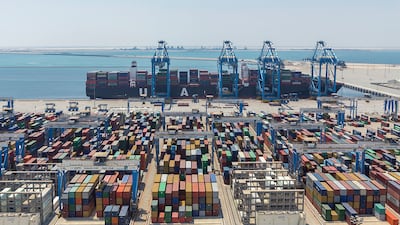Electric vehicle company NWTN is partnering with UAE-based Sultan Investments to set up a manufacturing base in Khalifa Industrial Zone Abu Dhabi (Kizad) as it expands its global network.
The EV SKD assembly base will be built in two phases, the company said on Monday. SKD, or semi knocked down, refers to the partial assembly of products in the manufacturing of a vehicle.
In phase one, NWTN plans to have 24,000 square metres of manufacturing, testing, inventory and storage space, with an annual capacity of 5,000 to 10,000 units. The first phase is due to be completed in the fourth quarter of 2022.
In phase two, the total area of the plant will expand to 100,000 square metres and the capacity will increase to 50,000 units per year. It is expected to be ready by the end of the first quarter of 2024.
“The manufacturing base will enhance the connection between NWTN and the UAE and the broader Middle East,” the company said.
Founded in 2016 by Chinese entrepreneur Alan Wu, NWTN recently rebranded and relocated its global headquarters to the UAE. It was previously known as Iconiq and worked in collaboration with UAE-based car manufacturer W Motors.
Sultan Investments, a private investment company, has operations across real estate development, asset management, hospitality, business centres and health clubs, with a focus on the Middle East.
S Motors, a wholly owned subsidiary of the company, will also partner NWTN in the development of the plant and EV distribution, the company said.
The announcement comes as AD Ports Group, which operates Kizad, revealed plans to build a regional auto hub in the zone to boost trade related to the automotive industry.
The project is expected to be ready in two years' time and will enable international trade of new and used passenger vehicles, commercial vehicles, spare parts, heavy equipment and machinery to several global destinations.
More than 430,000 vehicles per year are expected to move through the auto hub once it begins operating in 2024.
UAE-based Ghassan Aboud Group is also involved in the project.


